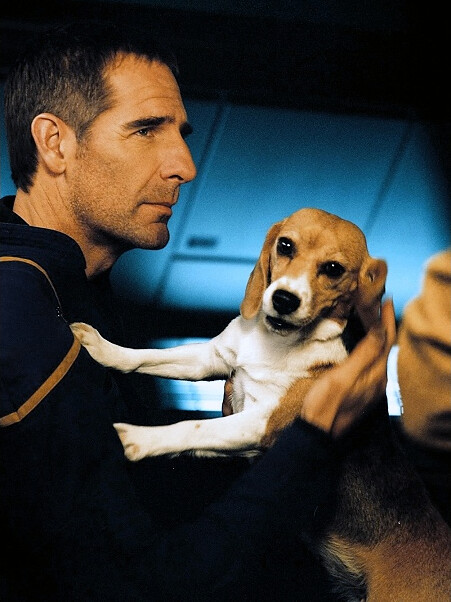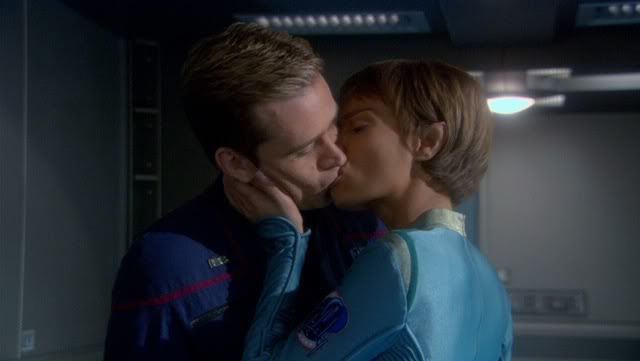As we approach the 15th anniversary of the Star Trek: Enterprise, I think it is important to both look back on its origins, and to reflect on the massive impact that it has had on society and modern culture.
I hope that this thread can be a sounding board for beginnings of such a discussion.
I also hope to explore the relationship between Enterprise and the post-9/11 ecology of agitation in light of George Bush’s strategy of collective perceptual management. While most readings focus on its allegory of the war on terror, I would prefer to address the audiovisual strategies by which Enterprise appeals to the viewer’s senses, mapping the emergence of a post-9/11 sensibility. My suggestion is that the show’s relationship with the post-9/11 reality rests in the power to address the audience’s feelings. To this end, I think we should look Enterprise’s aesthetics of crisis as operating as an affective vector, playing out in an informational system that invests in affective solicitation to provoke a bodily response in the audience. Given the status of television as the principal medium of post-9/11 governmental perceptual modulation, I argue that Enterprise’s relationship with the war on terror is rooted in an ability to express meaning and feeling, keeping a sensation of agitation alive throughout a four-season run. To expose the political value of the show’s aesthetics, I look not at the codes, as at the expressions and style that make up a scenario of sensorial stimulation where feeling becomes a biopolitical operator. Indeed, Enterprise's cinematographic techniques and haptic visuals, chromatic shifts and aural evocations effectively manufacture agitation, exposing a tension between the show’s status as an allegory of the contemporary world and its complicity with practices of televised affective engineering.
And as for the series' staying power, not a day goes by that a friend does not have something positive to say about Archer. "You have to check out Archer! Archer is awesome! That show is hilarious."
And let's not forget that John Billingsley was on that episode of "Ghost Whisperer."
What about all of you?
Where were you when Enterprise first aired, and how has your life been forever changed by it?
I hope that this thread can be a sounding board for beginnings of such a discussion.
I also hope to explore the relationship between Enterprise and the post-9/11 ecology of agitation in light of George Bush’s strategy of collective perceptual management. While most readings focus on its allegory of the war on terror, I would prefer to address the audiovisual strategies by which Enterprise appeals to the viewer’s senses, mapping the emergence of a post-9/11 sensibility. My suggestion is that the show’s relationship with the post-9/11 reality rests in the power to address the audience’s feelings. To this end, I think we should look Enterprise’s aesthetics of crisis as operating as an affective vector, playing out in an informational system that invests in affective solicitation to provoke a bodily response in the audience. Given the status of television as the principal medium of post-9/11 governmental perceptual modulation, I argue that Enterprise’s relationship with the war on terror is rooted in an ability to express meaning and feeling, keeping a sensation of agitation alive throughout a four-season run. To expose the political value of the show’s aesthetics, I look not at the codes, as at the expressions and style that make up a scenario of sensorial stimulation where feeling becomes a biopolitical operator. Indeed, Enterprise's cinematographic techniques and haptic visuals, chromatic shifts and aural evocations effectively manufacture agitation, exposing a tension between the show’s status as an allegory of the contemporary world and its complicity with practices of televised affective engineering.
And as for the series' staying power, not a day goes by that a friend does not have something positive to say about Archer. "You have to check out Archer! Archer is awesome! That show is hilarious."
And let's not forget that John Billingsley was on that episode of "Ghost Whisperer."
What about all of you?
Where were you when Enterprise first aired, and how has your life been forever changed by it?






